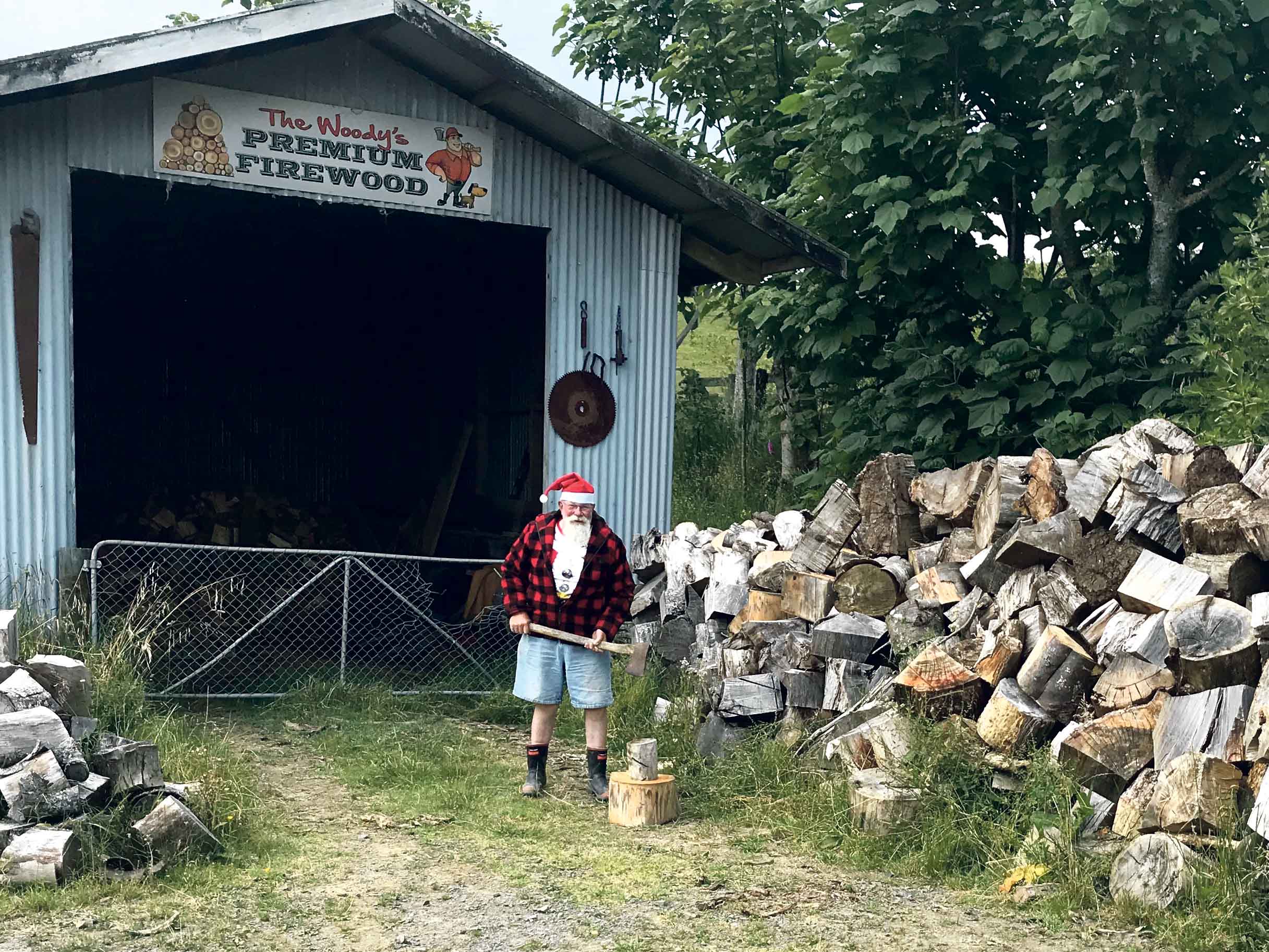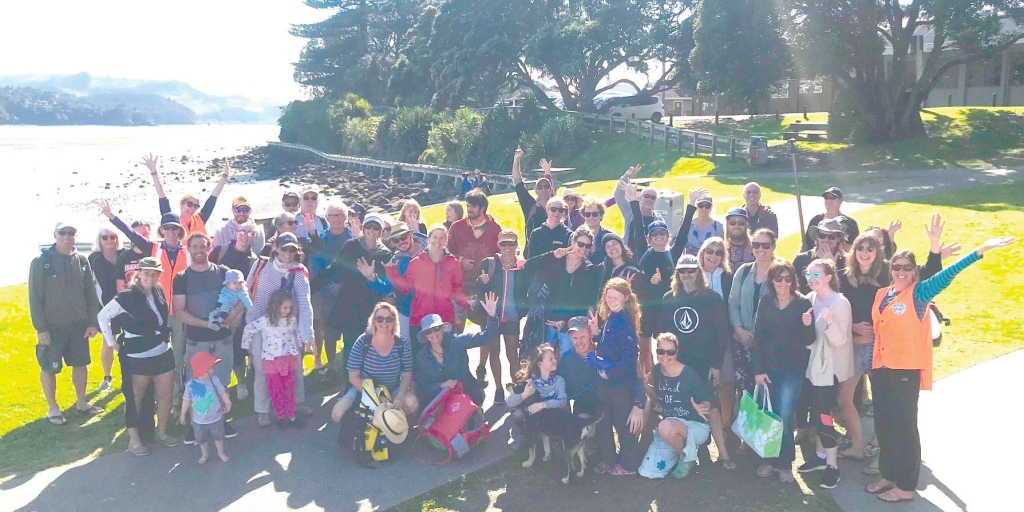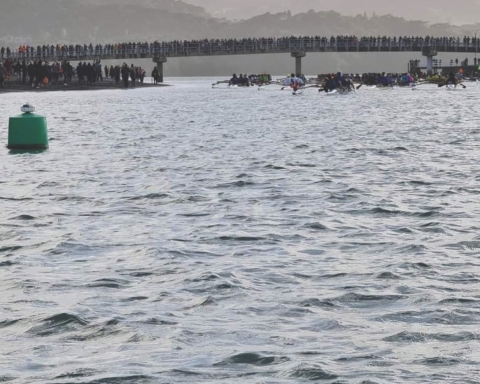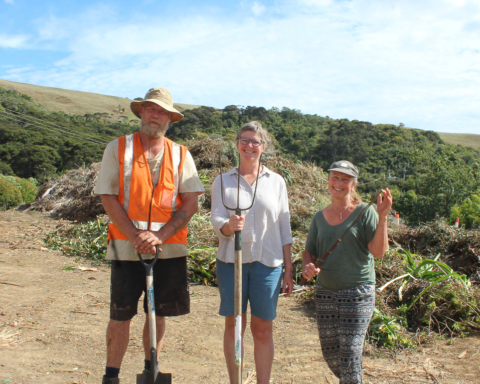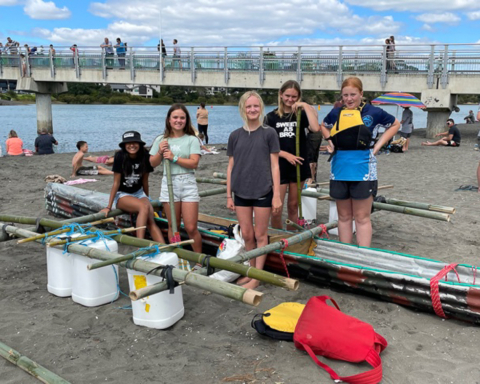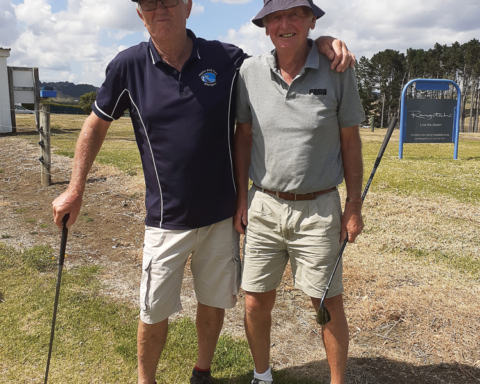A tornado that tore through historic farmland in Te Mata two years ago – leaving a trail of devastation – is now reaping benefits for an enterprising couple who’ve turned tragedy into triumph with a thriving firewood business.
“I thought it (the twister) was the end of the world,” says longtime local Jo Bloomer who for years now has farmed Ratanui, part of the old Kauroa block in Pond Rd, with partner and former Raglan vet Ross Loveridge.
“Gums were picked up and thrown at the stable … our shearing shed roof was blown clean off … there was debris up to my knees and all the (live) power lines were down,” she told the Chronicle. “I was terrified.”
Getting arborists in to clear the acres of fallen gum, macrocarpa and pine then truck it to the house cost a small fortune, Jo recalls. And investing in a wood splitter from the South Island wasn’t cheap either.
But Jo and Ross reckoned, rightly, their 40-year-old timber had a future. So while it may be a labour-intensive operation The Woody’s premium firewood, as it’s called, is finally seasoned and selling without their having to fell a single tree.
“We’ve built a business from a disaster,” says Jo proudly. The couple admit they’d been overwhelmed by the mess in the aftermath of the tornado.
With enough tornado firewood to last years, they are now focused on regenerating the native bush on their 600-odd acre property, which at its highest points has spectacular vistas over Whaingaroa’s waterways and harbour.
This historic farm is a “garden of Eden” to Jo who’s passionate about providing a natural setting of fertile grass and native trees for grazing quality sheep and beef.
Conversely she sees a neighbouring block of pines on Pond Rd, which is being commercially processed and sold offshore, as a disaster of another sort that threatens all of Raglan.
Jo says she knows firsthand the damage being caused, having recently bought part of the next-door block – with “toxic” pines felled and strewn over it – in a bid to save or rehabilitate the land.
“Pines take the guts out of the soil,” Jo insists. “Farmers have to be careful about clear-felling their paddocks.”
Once clear-felled, pines not only leave hillsides exposed to erosion but will ultimately clog up Raglan’s waterways with forestry “slash” as occurred at Tolaga Bay on the East Coast recently, she says.
Jo and Ross insist both their land and livestock are treated with respect. Jo’s also looking to open another sideline business – already dubbed The Little Kauroa Farm Shop – just as soon as she’s “nailed” her builder down to when he’s available to help take her rustic vision forward.
Selling “stuff” off the farm is the simple goal, she says, due in large part to the efforts of on site farm worker Sez Fitzpatrick and her friend Sass who take care of the planting and nurturing.
Jo’s optimistic environmentally aware locals and visitors will like what they’ll have to offer separately to their “premium” firewood (currently available at $180 a cubic metre delivered).
“We’re planting out trees, raising crops from seeds, caring for a very old organic orchard … all using sheep manure from under the shearing shed and the pure Ratanui water sourced from an underground river.”
● The Kauroa block was developed by one of Raglan’s pioneering European families, the Gibbisons, only three years after the Rev James Wallis set the ball rolling by buying several sections at the first Government land sale locally in mid-1852.
Edith Symes
